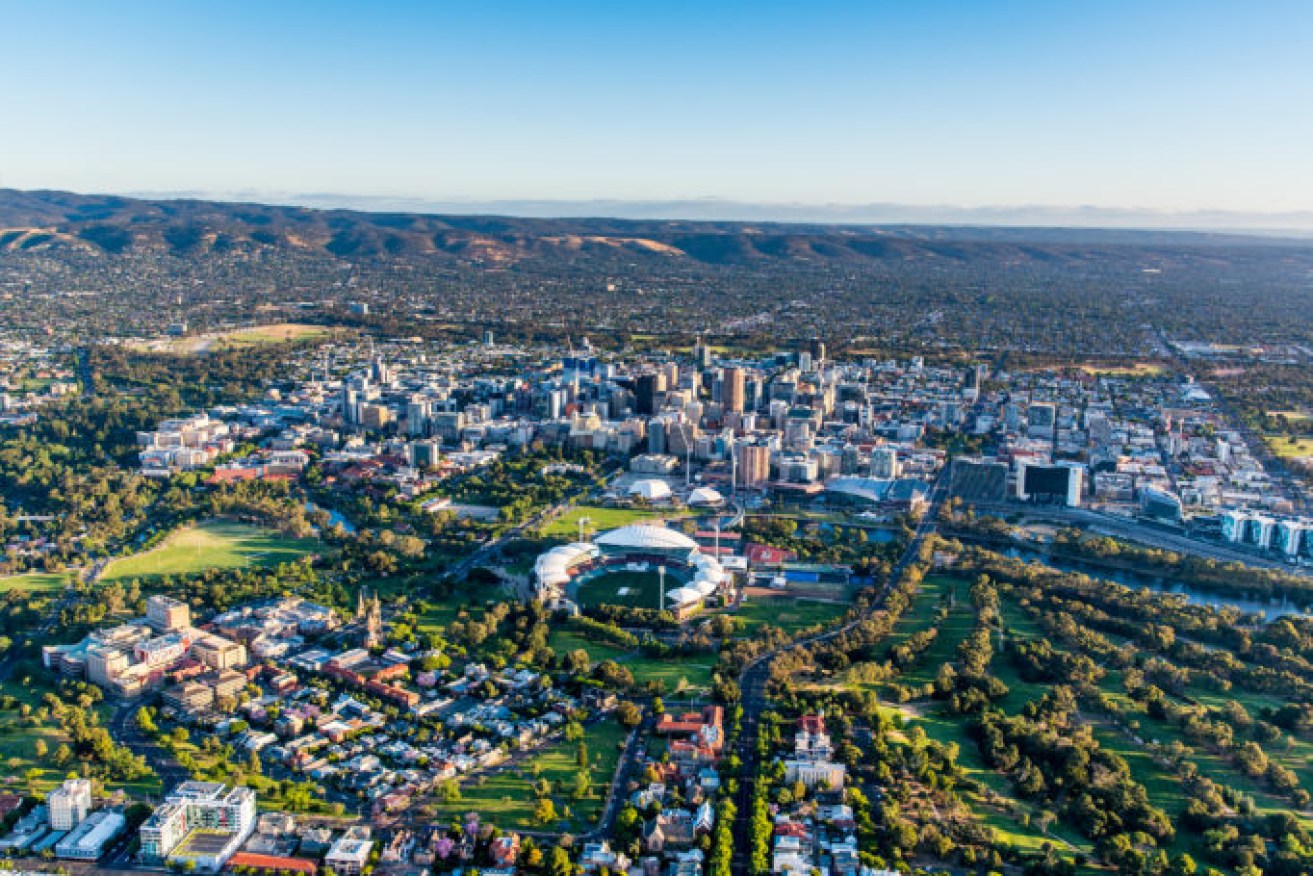Adelaide named Australia’s most liveable city, third in world
Adelaide has been ranked the world’s third most liveable city by a global index, moving up seven places to take the nation’s top spot from COVID-impacted Melbourne.


Adelaide has been ranked Australia's most liveable city (Photo: Airborne Media)
The Economist Intelligence Unit’s Global Liveability Index for 2021 ranks 140 cities across the world based on the five categories of stability, healthcare, education, culture and environment, and infrastructure.
Six of this year’s top ten are from Australia and New Zealand, with Auckland taking the title of the world’s most liveable city ahead of Japan’s Osaka and then Adelaide.
It is the South Australian capital’s highest ranking on the index since 2015 when it placed fifth, and represents a seven-spot increase from its 10th-placed finish in 2019.
The index gave Adelaide a perfect score for the categories of healthcare and education, as well as a 96.4 for infrastructure, a 95 for stability and an 83.8 for culture and environment.
The report’s authors attributed Adelaide’s high rating to its closed international borders, and noted the pandemic had caused “high volatility” in this year’s index.
Wellington and Tokyo rounded out the top five, while Perth (6), Melbourne (8) and Brisbane (10) were the other Australian cities to make the top 10.
Sydney – who were ranked third in the 2019 index – crashed out of the top ten to finish 11th, while Melbourne – who were rated the world’s most liveable city from 2011 to 2017 – were relegated to joint-eighth after finishing second in 2019.
Deloitte Access Economics partner Aaron Hill said Adelaide has “always done well” in the EIU’s analysis, but it was particularly pleasing to see this continue in the wake of the pandemic.
“Now that we’re seeing vastly increased rates of the adoption of technology enabling remote work, talented professionals and other workers in demand are going to have more choices about where they choose to live,” Hill said.
“This analysis shows that Adelaide is well placed to compete to attract those workers.”
Similarly, Property Council SA executive director Daniel Gannon said the ranking was “hardly a surprise”.
“Throughout the pandemic, our state has built a new reputation focused on resilience, safety, and wellbeing, which is leading to an increase in attention, population and investment,” Gannon said.
“One area of policy focus should now be attracting international students back to Adelaide to ensure South Australia’s export market remains as strong as possible.”
Elsewhere, COVID lockdowns across Europe saw the region record a huge liveability slump, with only the Swiss cities of Zurich (7) and Geneva (8) finishing in the top 10.
Austria’s capital Vienna – ranked world number one from 2018 to 2020 – dropped to 12th spot, while the German cities of Hamburg, Frankfurt and Dusseldorf lost 34, 29 and 28 places respectively.
The Canadian cities of Calgary, Vancouver and Toronto also dropped out of the top ten.
“The downward movement in rankings for the European and Canadian cities can be attributed to the heightened stress on healthcare resources during the second wave of the pandemic,” the report notes.
“The overall global average liveability score has fallen by seven points, as compared with the average pre-pandemic score.
“The extent to which cities were sheltered by strong border closures, their ability to handle the health crisis and the pace at which they rolled out vaccination campaigns drove significant changes in the rankings.”
The report also noted that the average score for culture and environment across the world fell by 14 points compared to pre-pandemic levels, primarily due to curbs on public gatherings.
However, the authors state that cities in Australia and New Zealand have largely been able to lift these social and cultural restrictions and reverse negative trends in the culture and environment category.
Outgoing Committee for Adelaide CEO Jodie van Deventer highlighted Adelaide’s “vibrant arts culture” and embracement of the “jobs and industries of the future” as key reasons for the city’s high placing.
“Our only surprise with these rankings is that we didn’t come in higher,” van Deventer said.
“Globally we’re seeing a shift away from megacities and the rise of medium-sized cities like Adelaide which offer all the benefits of city living without the congestion and cramped living.
“Our city’s brand is stronger than ever and our potential to attract global business and talent is enormous as international borders begin to open while for the first time in 30 years we’ve experienced net interstate migration.
“Adelaide is a well city with a bright future ahead and we have no doubt our city will continue to prosper.”
At the other end of the rankings, war-torn Syrian capital Damascus was named the world’s least liveable city, while Lagos, Nigeria and Port Moresby, Papua New Guinea were ranked second and third-worst.
The 10 most liveable cities in the world
1: Auckland, New Zealand (96.0)
2: Osaka, Japan (94.2)
3: Adelaide, Australia (94.0)
4: Wellington, New Zealand (93.7)
4: Tokyo, Japan (93.7)
6: Perth, Australia (93.3)
7: Zurich, Switzerland (92.8)
8: Geneva, Switzerland (92.5)
8: Melbourne, Australia (92.5)
10: Brisbane, Australia (92.4)




